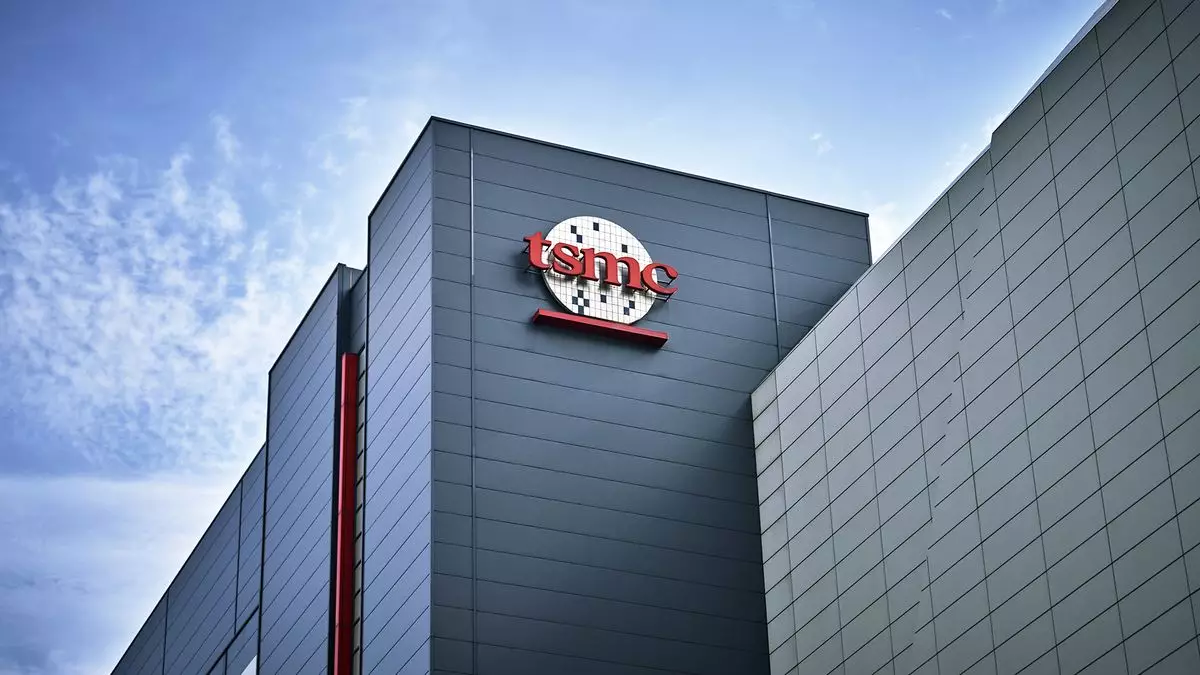In a striking development that underscores the volatile nature of international trade in semiconductors, TSMC (Taiwan Semiconductor Manufacturing Company), the world’s leading chip manufacturer, is reportedly facing a potential financial penalty that could exceed $1 billion. According to anonymous sources cited by Reuters, this penalty could serve as a settlement regarding an ongoing investigation initiated by the U.S. Department of Commerce. At first glance, one might assume that for a corporate giant like TSMC, a billion-dollar fine might not cause significant upheaval. However, the implications of this situation range far beyond mere financial metrics, intertwining with the complexities of international relations, technological dependencies, and the intricacies of global supply chains.
The heart of this predicament involves allegations that TSMC may have inadvertently supplied chips that find their way into products developed by Huawei Technologies, a Chinese telecommunications leader already under the scrutiny of U.S. export controls. TSMC’s reputation, built over decades, could be endangered if it is found to have violated these rules, particularly as it navigates an increasingly hostile trade landscape marked by high stakes and firm regulations.
Unpacking the Relationship with Huawei
The relationship between TSMC and Huawei is a microcosm of the broader geopolitical tensions that define my global economy today. TSMC reportedly informed the U.S. government late last year that a Huawei product, specifically the Ascend 910B AI processor, contained chips manufactured by TSMC. Complications arose when the U.S. took action against Sophgo, a design company that acted as an intermediary between TSMC and Huawei, placing it on the infamous “Entity List.” This designation complicates any transaction involving U.S. technology, creating a convoluted situation for companies like TSMC that rely on American made machinery and tools for manufacturing.
Despite claims from TSMC’s representatives, such as Nina Kao’s assertion that the company ceased providing anything to Huawei from 2020 onward, the scrutinization of their operational practices illustrates the tightrope walk they must perform between innovation and regulatory compliance. Even a hint of transgression can jeopardize not only TSMC’s financial standing but its future partnerships and collaborations in a rapidly evolving tech landscape.
The Potential Fallout: Beyond Financial Repercussions
If these allegations hold water and prove that TSMC has breached export controls, the ramifications could extend far beyond a hefty fine. The precedent set here may embolden governmental authorities to enforce stricter regulations and enhanced scrutiny on supply chains involving sensitive technology. For an industry already wrestling with the repercussions of the chip shortage, the advent of more stringent laws could cripple growth and threaten partnerships with vital clients who depend on TSMC’s advanced semiconductor technologies.
Furthermore, maneuvering through these waters requires an acute understanding of not only business strategy but political nuances. TSMC’s recent announcement of a $100 billion investment in U.S. manufacturing capability signifies a commitment to adapt and comply with national regulations. However, it raises questions about whether such commitments will afford TSMC any relief from scrutiny or if they will merely place a larger target on the company’s back as it navigates compliance.
The Broader Implications for the Semiconductor Industry
TSMC’s current predicament resonates with the larger semiconductor industry, which is often torn between satisfying domestic demands and managing international relations. The intricacies of global supply chains mean that companies can quickly find themselves enmeshed in geopolitical strife, notably in a market that relies heavily on international cooperation and cross-border supply chains.
As we observe TSMC’s unfolding situation, it’s crucial to gauge how this will shape approaches to regulation, partnerships, and industry resilience in the semiconductor sector. It raises significant questions about accountability in the rapidly changing tech world, where companies must frequently reassess their compliance measures, navigating an increasingly multipolar world.
In a climate fraught with tension, TSMC’s potential fine acts as both a cautionary tale and a stark reminder of the fragility inherent in global business operations. For a company that has long held a dominant position in the semiconductor arena, the road ahead is fraught with unforeseen challenges that require not just strategic foresight, but also an understanding of the complex interplay of technology, policy, and global economics.

